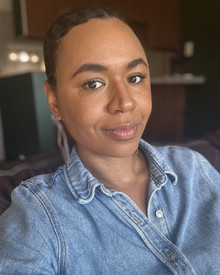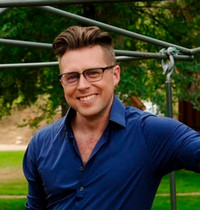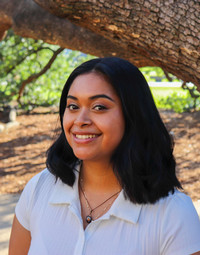Joëlle Cruz '12, PhD Alumni

What impact did your graduate experience at Texas A&M have on your professional trajectory?
My graduate experience had a profound impact on my professional trajectory. I received robust research training from some of the leading scholars in the field of Organizational Communication (Dr. Charles Conrad, Dr. Kevin Barge, and Dr. Kathy Miller to name a few). I am now a tenured professor in Organizational Communication at the University of Colorado at Boulder.
What from your graduate experience at Texas A&M has equipped you to approach problem-solving and foster innovation within your professional career?
I was encouraged by my advisor, Dr. Charles Conrad, to pursue my own research trajectory. At the time, there was limited work on African contexts in organizational communication, and my advisor, along with some mentors, supported me in carving out my path, which enhanced my problem-solving abilities and resourcefulness.
What specific experiences or challenges from your graduate studies at Texas A&M do you find most directly applicable to your day-to-day work in your current professional role?
My time at A&M taught me the importance of adaptability and resilience. As an international student moving from France to Texas via Indiana, I experienced a significant cultural transition. Adjusting to College Station allowed me to develop flexibility and perseverance that I use in my daily professional life.
As someone who has successfully transitioned from graduate studies to a professional career, what advice would you give to current graduate students about preparing for the transition to the professional world?
My advice is to be diligent and to take small steps throughout the Ph.D. process. I also recommend researching and using campus resources for graduate students. For example, I joined a dissertation writing workshop organized by the library at A&M. I also made use of career services by having them review my CV.
What advice would you give to someone considering graduate study at Texas A&M?
I recommend doing one’s research about the program and the university beforehand to familiarize yourself with resources. A key element in my success was building a support network of peers, so I encourage prospective students to devote time to cultivating relationships with their cohort members. Finally, maintaining a hobby can be helpful in managing stress.
Jed Chalupa '24, PhD Alumni

What impact did your graduate experience at Texas A&M have on your professional trajectory?
One of the biggest benefits of Texas A&M’s CMJR graduate program was the flexibility that was available for me to tailor my education to my own specific interests and career goals. There were not the same “tracks” that many other programs require individuals to select, and this allowed me the freedom I needed to explore various options, as I knew from the start that I was interested in going the non-tenure track route following the completion of my doctoral program.
Furthermore, my time with Texas A&M’s CMJR graduate program provided other professional opportunities that greatly improved my marketability once I entered the non-academic job market. These included opportunities to be conference director of the Communicating Diversity Conference and the availability to complete the Brazos County Alternative Dispute Resolution’s 40-hour basic training during the summer session. The availability of diverse opportunities—beyond coursework—further supports students as they seek to tailor their graduate experience to their interests and goals.
What from your graduate experience at Texas A&M has equipped you to approach problem-solving and foster innovation within your professional career?
Although I now work in a non-academic space, receiving a research-based degree from Texas A&M remains central to my career. In my job, it is my responsibility to engage diverse individuals from across Washington State and the Pacific Northwest region in multiple ways concerning public policy issues. The research skills I learned are central to my work, as I design the best ways to engage people on issues—be it through interviews, focus groups, or surveys. My research experience helps me develop questions that will spark innovative thinking and analyze the inputs provided by those I engage with through various coding practices.
What specific experiences or challenges from your graduate studies at Texas A&M do you find most directly applicable to your day-to-day work in your current professional role?
When I think of the challenges faced in graduate school, I often think about being audience-centered. Tailoring messages to the immediate situation is a skill that was directly and indirectly honed during my time in the program. As I have worked outside of the academic space, I have recognized how important this skill continues to be especially as I interact with people who do not share the same professional background. The experience of holding conversations on contentious and complex issues alongside my fellow cohort members and other graduate students helped prepare me to navigate these contentious topics with others in any professional situation.
As someone who has successfully transitioned from graduate studies to a professional career, what advice would you give to current graduate students about preparing for the transition to the professional world?
As someone who has transitioned from graduate studies to a professional career, be it in academia or a non-academic route, my advice is to stay connected to community. It is easy for students to become so focused on achieving their graduate degree and viewing the community surrounding the university as a transitional space, however, I would advise that you remember that you are more than a student and that staying connected to community beyond your immediate academic environment is important. Through staying connected, diverse opportunities present themselves. These opportunities often allow you to utilize what you learn—in the classroom or your research—in real-world settings that can help prepare you for making the transition from student to professional. This is especially true if you are like me and plan to pursue non-academic career tracks.
What advice would you give to someone considering graduate study at Texas A&M?
Texas A&M has an incredible communication and journalism program with great faculty. The freedom Texas A&M allows in the CMJR program is extremely valuable. Embrace the ability to take coursework in areas that may seem a little outside your comfort zone or planned area of specialization. This can help you explore problems from new vantage points and build relationships with diverse faculty members, relationships that are going to be key in selecting the right advisor for you. The opportunity to build these diverse relationships and “shop around” a bit is not given in every graduate program. I would also praise the CMJR program for having faculty that, in my experience, recognize the humanity of graduate students. I never felt like I was expected to be a machine that produced and achieved regardless of what was happening in my personal life. Faculty were willing to work with students and remember that we are all complex humans with multi-faceted lives. Again, this is not true of every graduate program and makes Texas A&M stand out among many.
Arely Herrera '23 MA Alumni

What impact did your graduate experience at Texas A&M have on your professional trajectory?
My graduate experience at Texas A&M revealed to me that I wasn’t ready to commit to academia this early on at my age. Transitioning into a Master’s program instead provided me with a pathway to entering higher education in a more professional advisory role rather than a research-focused one. Teaching undergraduate level courses was really beneficial to my current work guiding prospective undergraduate students through the admissions process. Building relationships with my Public Speaking and Difficult Dialogues students was one of my top priorities. Although I’m not meeting with 25 students at once, that teaching experience strengthened my ability to build relationships with prospective students at Christian Brothers University.
What from your graduate experience at Texas A&M has equipped you to approach problem-solving and foster innovation within your professional career?
Having consistent discussions with my peers in PhD level classes taught me how to work with others as a team. Classes from the Media, Identity and Culture program taught me how to integrate my identity as an artist and my identity as a critical thinker. Those experiences in particular were really beneficial to the development of my public (artistic) scholarship.
What specific experiences or challenges from your graduate studies at Texas A&M do you find most directly applicable to your day-to-day work in your current professional role?
My classes in Latinx Immigration and Intersectionality (Sociology) and Student Immigrant Experiences K-12 and Higher Ed (Education) have been most helpful to my current responsibilities. I work directly with the University’s partners Equal Chance for Education and TheDream.US to recruit and admit undocumented students. Those classes from my Latinx and Mexican American Studies Graduate Certificate provided me with the careful tools to engage with and guide prospective undocumented students.
As someone who has successfully transitioned from graduate studies to a professional career, what advice would you give to current graduate students about preparing for the transition to the professional world?
My advice would be to self-reflect. Ask yourself the tough questions in a way that isn’t self-critical but in a way that fosters empathetic understanding for yourself and those around you. Ask “Why am I here?” It’s something I consistently asked myself—not because I doubted my abilities but because I wanted to gauge my strengths. I self-reflected because I wanted to understand how my graduate experience would impact my growth both personally and professionally. Be patient and be welcoming of change.
What advice would you give to someone considering graduate study at Texas A&M?
If someone is considering graduate study at Texas A&M, I would advise them to do research on the campus and on College Station, Texas. Visit if you can so that you can imagine yourself there. College Station is a tough place to be if you’re used to something different so it’s incredibly important to visit. I would also advise them to reach out to the faculty. Although busy, they are often happy to talk with prospective students. Maybe even connect with current grad students if you’re able to. Connections are extremely important when you’re in a small town like College Station!
Anthony Ramirez '22, PhD Alumni

What impact did your graduate experience at Texas A&M have on your professional trajectory?
I made a lot of close friends and mentors, who I keep in touch with to this day. Working with them taught me so much, including how to set up conferences, events, multimodal projects, podcasting, and use innovative approaches in and out of the classroom. This has all helped me with my job as an Assistant Professor and Assistant Director of the Center for Latino Studies. The experiences I have gained from my mentors have really shaped who I am as a person, instructor, and mentor for my own students.
What from your graduate experience at Texas A&M has equipped you to approach problem-solving and foster innovation within your professional career?
The expectations from my mentors were extremely high, and this helped me build so many skills that helped me to be quick on my feet with decision-making. Also, my mentors encouraged me to be creative with my work and teaching, which allowed me to approach my pedagogy innovatively.
What specific experiences or challenges from your graduate studies at Texas A&M do you find most directly applicable to your day-to-day work in your current professional role?
Time management and balancing out work and free time are all super important. One of the biggest things that happened to me while at TAMU was overworking and burning out, but I learned what my limits are from that experience. I tell a lot of my friends, colleagues, and even my students to learn what your limits are and rest when you need to. Work will always be there, so give yourself time to rest your mind, body, and soul. It is important to recharge.
As someone who has successfully transitioned from graduate studies to a professional career, what advice would you give to current graduate students about preparing for the transition to the professional world?
Trust the process. Your hard work will pay off and lead you where you are meant to be.
What advice would you give to someone considering graduate study at Texas A&M?
My first piece of advice is to find a research topic that you are passionate about and will want to do for the long haul. Second, be sure to build community with your colleagues and professors. It is important to build community with them. Third, do not be afraid to ask your professor questions if you are unsure about something. Finally, make sure you choose the right mentor(s) for you. That makes a world of difference!
